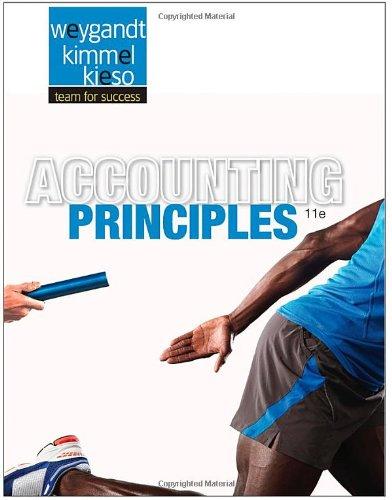Question
On December 1, 2020, Vaughn Company had the account balances shown below. Debit Cash $5,000 Accounts Receivable 4,400 Inventory 1,920 Equipment 21,000 Debit Total $32,320
On December 1, 2020, Vaughn Company had the account balances shown below.
Debit
Cash $5,000
Accounts Receivable 4,400
Inventory 1,920
Equipment 21,000
Debit Total $32,320
Credit
Accumulated Depreciation—Equipment $1,200
Accounts Payable 3,800
* Owner’s Capital 27,320
Credit Total $32,320 *(3,200 x $0.60)
The following transactions occurred during
December:
Dec. 3 Purchased 5,200 units of inventory on account at a cost of $0.74 per unit.
5 Sold 5,500 units of inventory on account for $0.90 per unit. (Vaughn sold 3,200 of the $0.60 units and 2,300 of the $0.74.)
7 Granted the December 5 customer $177 credit for 200 units of inventory returned costing $118. These units were returned to inventory.
17 Purchased 2,300 units of inventory for cash at $0.80 each.
22 Sold 2,400 units of inventory on account for $0.95 per unit. (Vaughn sold 2,400 of the $0.74 units.)
Adjustment data: 1. Accrued salaries payable $300. 2. Depreciation $240 per month. Prepare the following: 2. Enter the December 1 balances in the ledger T-accounts and post the December transactions 6. Compute ending inventory and cost of goods sold under FIFO, assuming Vaughn Company uses the periodic inventory system. 7. Compute ending inventory and cost of goods sold under LIFO, assuming Vaughn Company uses the periodic inventory system.
Step by Step Solution
There are 3 Steps involved in it
Step: 1
To compute ending inventory and cost of goods sold under FIFO and LIFO for Vaughn Company using the ...
Get Instant Access to Expert-Tailored Solutions
See step-by-step solutions with expert insights and AI powered tools for academic success
Step: 2

Step: 3

Ace Your Homework with AI
Get the answers you need in no time with our AI-driven, step-by-step assistance
Get Started


